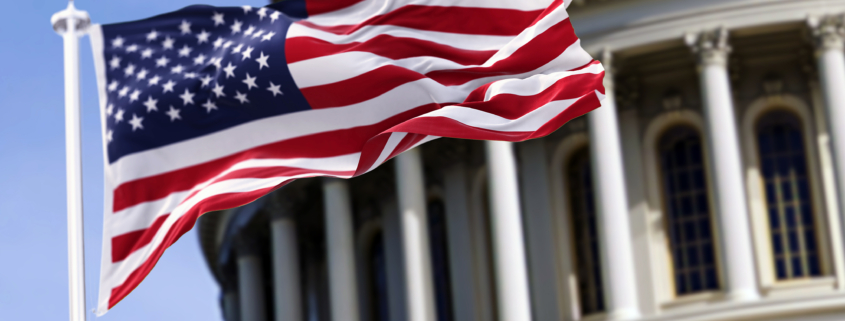Executive Letter: Advocating for Wisconsin Banks in Washington D.C.
 By Rose Oswald Poels
By Rose Oswald Poels
Last week for the first time in two years, I was back in Washington D.C. with a small group of nine bankers from Wisconsin for meetings with banking regulators and a few members of Congress. Joining WBA was a delegation of six bankers and two staff from the Illinois Bankers Association. While our meetings with regulators were still virtual, all meetings were productive affording the smaller group of bankers ample time to ask questions and hear directly from senior officials about a wide variety of issues.
We began the first day in the afternoon with briefings from the FDIC and OCC. FDIC Board Director Martin Gruenberg led the conversation highlighting the fact that while the FDIC anticipated stress in the banking system heading into the pandemic that did not materialize and notably, there have not been any bank failures in 2021. Areas of focus for the FDIC remain on commercial real estate, tailoring climate change risk concerns based on the impact to different markets and/or the size of the institution, and on the impact of non-bank companies to the financial system. OCC Acting Director Michael Hsu led the discussion with bankers emphasizing his support for community banks, his understanding of the need to tailor regulation to the size and complexity of each institution, and robust discussions around both FinTechs and climate change.
The next day featured conversations with FinCEN and CFPB. Naturally, the discussion with FinCEN was largely around the status of their development of a beneficial ownership registry which remains in process. Until one is finally launched, banks will still have to follow the current beneficial ownership rules. A representative from FinCEN’s Financial Intelligence Division indicated that they have seen an increase in all types of crime notably COVID-19 fraud, work at home scams, cyberthreats of all types (e.g. ransomware and account takeovers), and illicit use of cryptocurrency. The primary focus of our conversation and questions with the CFPB was around the upcoming Section 1071, small business data collection proposal. The bankers took turns stressing the hardships of the current proposal and asking for an extension of the comment period deadline so that the industry had adequate time to respond to the many issues raised in the over 900-page document. CFPB staff indicated that they have been in meetings with the core providers on this proposal already to help prep them ahead of time so that data collection would be easier once the proposal is finalized.
These meetings are impactful largely due to the proactive engagement of the bankers in the room. I encourage you to take advantage of these opportunities as they arise and be involved because each regulator we met with unequivocally stated they want to hear directly from bankers about the impact proposals have on their operations. While WBA certainly represents the industry’s concerns, bankers truly make the best advocates in sharing specific examples about the impact on the operations of individual banks.







